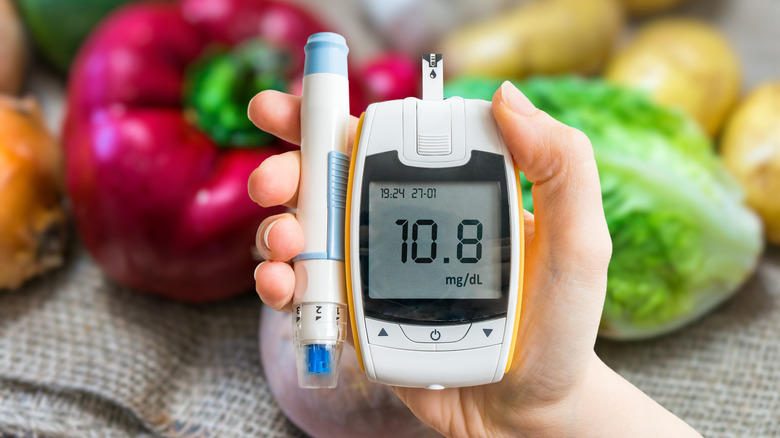
While most of us know that we need to schedule routine maintenance for our cars and even our heating and A/C systems before they break down rather than waiting for disaster to strike, sometimes we’re not quite as conscientious when it comes to our own health and well-being. Sure, we might undergo an annual physical each year, but unless we’re complaining of any particular symptoms, such a checkup might not amount to much more than a weigh-in, a stethoscope to the chest, and maybe a hammer to the knee to check if you’re still alive and (literally) kicking.
While your doctor will partner with you as best they can to keep you in tip-top shape, it may be up to you to take some initiative in requesting to undergo certain tests. Needless to say, if your doctor prescribes diabetes screening for you, you should make sure to have it right away. Even if the doctor doesn’t bring it up, though, you should take time to ask about having this procedure done should you meet any of the risk factors.
Who should be screened for diabetes?

One of the major risk factors for developing diabetes is simply reaching a milestone birthday. According to the National Institute of Diabetes and Digestive and Kidney Diseases, the magic number is 45. Once you reach this age, Rite Aid says you should probably get screened at least every three years. Even if you’re still in your 20s, though, you could still be in need of diabetes screening since there are plenty of other risk factors to take into account.
If you have a family member with diabetes, this increases your chance of developing the condition. You also have a higher chance of developing diabetes if you’re of Asian, African, Hispanic, Native American, Native Alaskan, Native Hawaiian, or Pacific Islander descent. High blood pressure, low level of HDL (“good”) cholesterol levels, high triglycerides levels, a history of stroke or heart disease, polycystic ovary syndrome, a sedentary lifestyle, and being overweight are all indicators of potential diabetes risk as well.
Dr. Vivek Cherian, MD, an internal medicine physician who works with the University of Maryland Medical System, pointed out another risk factor to Byrdie, saying anyone who is or plans to become pregnant soon should book a diabetes screening. If you have a previous history of gestational diabetes and/or have already given birth to a baby who weighed 9 pounds or more, these could also increase your chances of becoming diabetic.
There are four different diabetes screening tests

There are four main types of diabetes screening tests that may be prescribed when you book a diabetes screening. Heads up: according to Rite Aid’s pharmacy, two of them will require you to do some fasting first! The fasting plasma glucose test is, as its name implies, a test that measures your blood glucose levels after you have fasted for at least eight hours, so it’s advisable to schedule it in the morning. The oral glucose tolerance test also requires an eight-hour fast before you take it, although you will be breaking that fast with a sugary drink just as the test is given so the test can measure your body’s ability to process that sugar.
The hemoglobin A1c test (or just A1c for short) determines your average blood glucose level over two to three months, and does not require any fasting. The problem with this test, though, is that it isn’t going to be very accurate if you have certain conditions such as iron-deficiency anemia, kidney failure, liver disease, or anything else that can affect the lifespan of your red blood cells. One additional type of test called the random plasma glucose test is only done on people who are already showing symptoms of diabetes. It gives an immediate reading of blood sugar levels and it also requires no prior fasting (via the Centers for Disease Control and Prevention).
What you should do if your diabetes screening is positive

With any luck, your diabetes screening will come back negative, but even in such an instance, WebMD says that you will probably need to be re-screened at least every three years and perhaps more often if your medical condition warrants this. You may also need to have additional screening done if there’s any suspicion that you are in a pre-diabetic state. You should also address any diabetes risk factors that can be changed. While obviously you can’t do anything about your family medical history, you can and should take steps to lose any excess weight and to get a sufficient amount of exercise.
If you do test positive for diabetes, however, it’s even more important to manage your weight, adopt an exercise program, and make any other lifestyle alterations that your doctor advises. You’ll probably also need further testing and perhaps medication in order to manage this chronic condition. There’s no need to panic, though. Instead, you need to adopt a positive mental attitude and look at the diagnosis as a wake-up call. There’s a very good chance that the healthy habits you’ll need to adopt in order to deal with your diabetes will result in your feeling better than you have in years.
Source: Read Full Article
